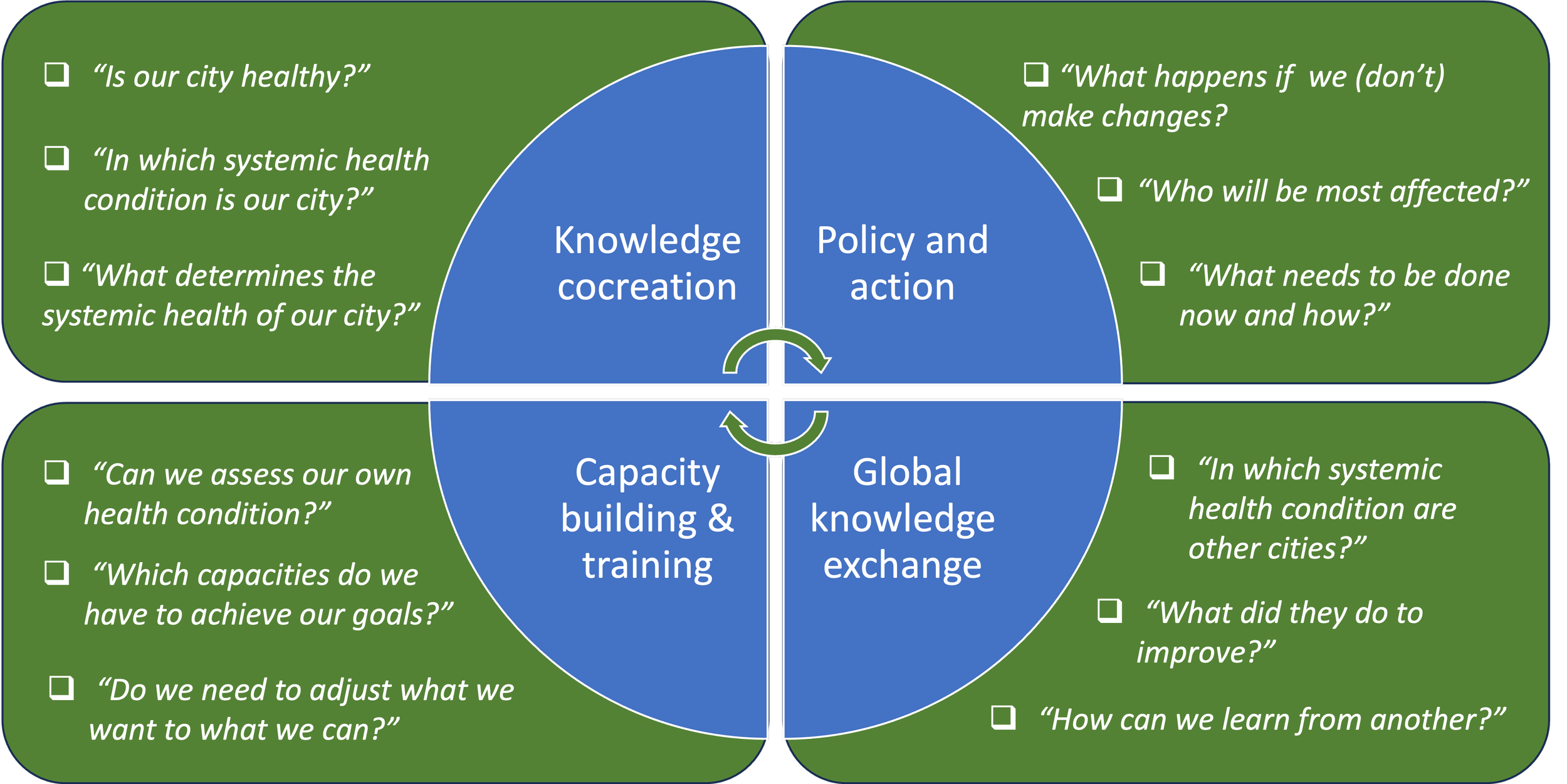
The single greatest challenge
for local and regional governments globally,
is to achieve resilience resourcefully.

systemic health potential
We help cities unlock their
Systemic health checks for cities and communities
Without sound knowledge of their systemic health condition,
cities cannot effectively mobilize their resources and capacities for growth, resilience or transformation.
Without sound knowledge of their systemic health condition,
core functions of cities may already have been compromised without being noticed. This can mislead cities to adopt measures to mitigate hazards, while in fact they are already managing disasters.
Which challenges are cities facing?
Cities perform
supporting, provisioning, regulating, and cultural functions.
There are adaptation challenges in all functional domains.
If the challenges are not addressed systemically, they lead to unintended side-effects, inequality and cascading effects across all functional domains, potentially triggering public health hazards and disasters.
Read more about urban system functions:
Resilience Management for
Healthy Cities
in a Changing Climate
Thomas Elmquist, Franz Gatzweiler, et al. 2019
Common
urban health challenges
in pictures
Public services
Poverty and inequality
Food
Housing
Water
Ageing
Healthcare
Energy
Overcrowding
Light, noise, air pollution
Recycling
Urban green space
Climate adaptation
Transport and mobility
Regulation
Culture, recreation, lifestyle





















